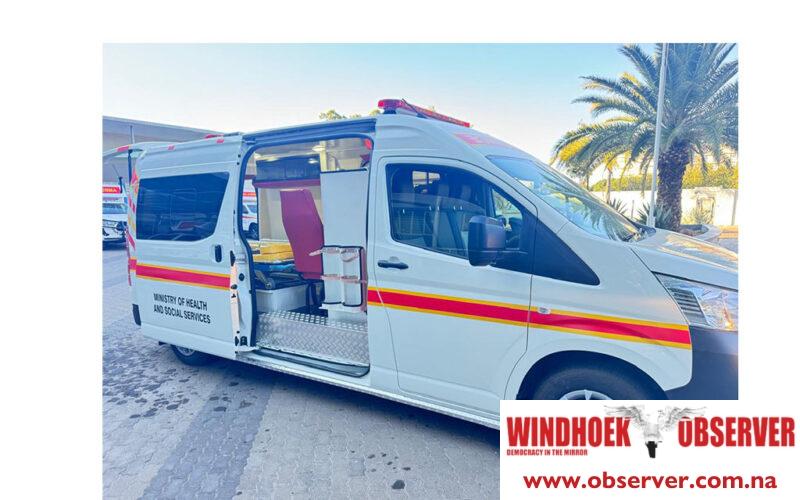Niël Terblanché
The Ministry of Health and Social Services has commissioned 36 new ambulances to improve emergency medical care across Namibia. The vehicles were officially put into service on Monday in Windhoek.
Health Minister Dr Esperance Luvindao said the new fleet is part of efforts to strengthen the country’s public healthcare system.
“These vehicles symbolise our resolute commitment to saving lives and strengthening our healthcare system,” she said at the commissioning ceremony.
The ambulances will be sent to health facilities in both urban areas and rural communities. Luvindao stressed the importance of a quick response in medical emergencies.
“These ambulances will ensure that no citizen is left behind due to lack of access to urgent medical care,” she said.
She acknowledged that the 36 ambulances are not enough for the more than 360 health facilities in the country.
“Procuring thirty-six ambulances for such a huge number of facilities is like a drop in the ocean,” Luvindao said.
To help address the shortage, the ministry plans to set up Medical Care Emergency Response Centres in all 14 regions. These centres will be staffed with emergency care practitioners and equipped to handle emergencies.
She said smaller emergency vehicles will also be provided to hospitals and clinics where needed.
“Looking ahead, the ministry is exploring the acquisition of smart ambulances equipped with advanced technologies, including 5G connectivity for real-time data transmission, artificial intelligence-assisted care, and augmented reality guidance for paramedics,” Luvindao said.
She added that the ministry is considering partnerships with private ambulance services and air ambulance operators to improve response in hard-to-reach areas and during natural disasters.
Luvindao urged healthcare administrators and regional health directors to maintain the ambulances and use them properly.
“These assets are vital and must be handled with professionalism, utmost care and dedication,” she said.
She also addressed paramedics and drivers directly.
“Treat them not just as machines, but as tools of hope and service. Maintain them, respect them, and use them in the spirit of Ubuntu, with compassion, dignity, and a deep sense of duty.”
She reaffirmed the ministry’s commitment to universal health coverage and Vision 2030.
“No Namibian should die because they live far away from a hospital,” Luvindao said.




